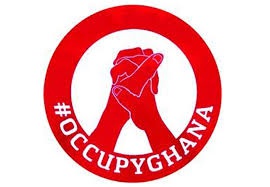 OccupyGhana logo
OccupyGhana logo
Pressure Group, OccupyGhana has proposed that the creation and building up of “Public Records” at the Public Records and Archives Administration Department (PRAAD) should become a focus of the right to information regime, as it provides a simpler access procedure to information.
OccupyGhana believes “once we cultivate a habit of routinely building up the store of public records, it would hopefully reduce the need to resort to Right to Information processes to have access to information because the bulk of that information would already be in the public records stored at PRAAD.”
This proposal was contained in a memoranda addressed to the Attorney-General & Minister of Justice as the country seeks inputs from civil society organisations into the formulation of the Right to Information (RTI) bill.
Below is the full memorandum:
May 21, 2018
The Attorney-General & Minister for Justice
Attorney-General’s Department
Accra
Dear Madam:
Memorandum of OccupyGhana on the Right to Information Bill, 2018
We apologise for the delay in submitting this memorandum to you on the 2018 Right to Information Bill.
We are very concerned about having easy access to contracts that the government or its agencies enter into. And this brings to the fore the critical right to information role that Public Records and Archives Administration Department (PRAAD) is expected to play under the provisions of the Public Records and Archives Administration Act, 1997 (Act 535), which does not appear to have attracted much attention in the review of the right to information so far (See also the provisions of the Public Records and Archives Administration Department (Establishment) Instrument, 1996 (LI 1628)).
As a key existing right to information-relevant legislation, we propose that the creation and building-up of “Public Records” at PRAAD should become a focus of the right to information regime, as it provides a simpler access procedure to information that has become public record by being filed with PRAAD. Once we cultivate a habit of routinely building up the store of public records, it would hopefully reduce the need to resort to RTI process to have access to information because the bulk of that information would already be in the public records stored at PRAAD.
Section 26 of Act 535 defined “public records” to include “records that belong to the Republic created, received and maintained:
(i) by a public office, by a Minister or any other person responsible for a public office or by any other officer or employee of a public office;
(ii) by a Court with jurisdiction within the Republic or by a Justice or other officer of that Court; [and/or]
(iii) by any other body or individual so designated by the Regulations.”
Once a matter is considered “public record” by Act 535, PRAAD would have automatic access to it even if it has not been formally filed. That is why it is provided under section 24 of Act 535 that
“A person who without reasonable cause, denies access to a public record to an official of the Department commits an offence and is liable on summary conviction to a fine not exceeding two hundred penalty units or to a term of imprisonment not exceeding six months or to both the fine and the imprisonment.”
In our view, there must be a side-by-side consideration of the provisions of Act 535 and the RTI Bill so that they complement and strengthen each other.
Further, and with specific reference to contracts, section 23(1) of the State Property and Contracts Act, 1960 (CA 6) provides that copies of contracts to which Ghana is a party should be kept by the PRAAD. The formulation of the law as it stands now reads as follows:
“The original copy of a contract or an agreement entered into for and on behalf of the Republic shall be kept by the Government Archivist.”
We see two main issues arising from this provision:
(1) it does not provide a time within which the relevant government agency that entered into the contract must submit it to the “Government Archivist,” which to all intents and purposes is now the PRAAD, and
(2) this appears to be limited to contracts to which the Republic is directly a party and not to all contracts by all statutory corporations and government agencies.
We propose that the proposed Right to Information Act should amend section 23(1) to read as follows:
“The original copy of a contract of a Government Contract shall be submitted by the designated officer of the ministry or other government agency, statutory body, or statutory corporation which entered into it, to the Public Records and Archives Administration Department within 30 days of its execution, for filing.”
Then it should adopt and adapt the definition of “Government Contract” in the Government Contracts (Protection) Act, 1979 (AFRCD 58) to read as follows:
“‘Government Contract’ means a contract entered into by or on behalf of the government, any agency of government, statutory or public corporation, or a company in which the state has a controlling interest for the performance of a work or service for or the supply of goods to the government, agency of government, corporation or company.”
Respectfully submitted,
For: OccupyGhana Legal Team (OGLT)
cc. The Clerk
Parliament House
Accra
The Convener
RTI Action Campaign
Accra